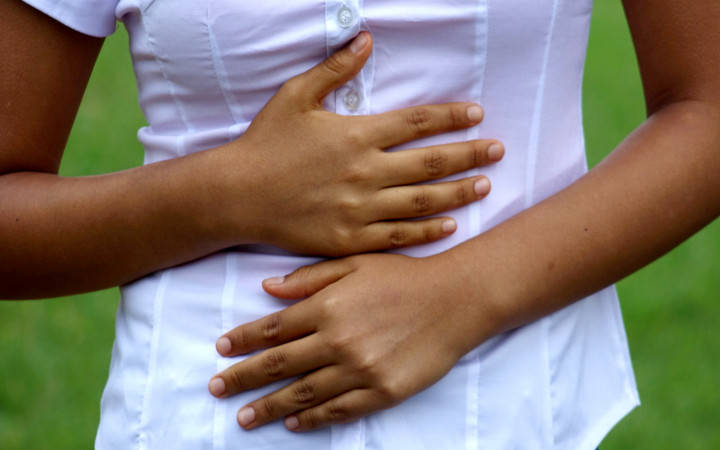Today’s Wonder of the Day was inspired by Anya. Anya Wonders, “How do your intestines help you live?” Thanks for WONDERing with us, Anya!
Has anyone ever told you, “You are what you eat”? It’s an old saying, but it’s also true! That’s why it’s so important to eat healthy food. Your digestive system breaks down what you eat and sends it all over your body. Today’s Wonder of the Day covers a very important part of that process—your intestines.
The intestines are also called the “bowels.” And, of course, there are two of them—the small intestine and the large intestine. Together, they make up the longest part of your digestive system.
The name “small intestine” is a bit misleading. On average, it’s actually 10 to 16 feet (three to five meters) long! However, this organ is only about one inch (2.5 centimeters) in diameter, which is why we call it “small.” Despite its name, the small intestine is responsible for about 90 percent of digestion.
When food leaves the stomach, it enters the small intestine. Once there, a meal is further broken down by enzymes from the pancreas. This process is also helped by bile from the gallbladder and liver. The cells in your intestine then absorb most of the broken-down nutrients and send them to your bloodstream. From there, blood cells carry them to the rest of the body.
The large intestine is much wider, with a diameter of about three inches (7.5 cm). However, it’s only about five feet (1.5 m) long. Most of the large intestine is made up of the colon.
What job does the large intestine do? It absorbs any water, electrolytes, or salt still in the digested food. Anything left over after all the useful nutrients have been removed from the food becomes waste. Can you guess what happens next? That’s right—the waste travels through your large intestine, into your rectum, and out of your body through the anus.
Clearly, the intestines are a very important part of the digestive system. Without them, your body wouldn’t be able to absorb all the healthy nutrients from the food you eat. But, of course, they’re just one part of the whole system. Organs like the stomach, liver, and pancreas also play important roles.
When something goes wrong in your digestive system, it can be very uncomfortable. If you’ve ever had a stomach bug, you know that to be true! For some people, foods that contain gluten or dairy can cause problems in the intestines. If you notice discomfort after eating certain things, talk to a trusted adult. They can help you find ways to feel better.
One of the best ways to keep your intestines healthy is to eat plenty of nutrients every day. It can be tempting to reach for a sugary soda or snack, but your body will thank you for chomping down on fruits and vegetables instead! What better way to thank your gut for all it does for you?
Standards: NGSS.LS1.A, NGSS.LS1.C, CCRA.R.1, CCRA.R.2, CCRA.R.4, CCRA.R.10, CCRA.L.3, CCRA.L.6, CCRA.W.2, CCRA.W.4, CCRA.SL.1, CCRA.SL.2




